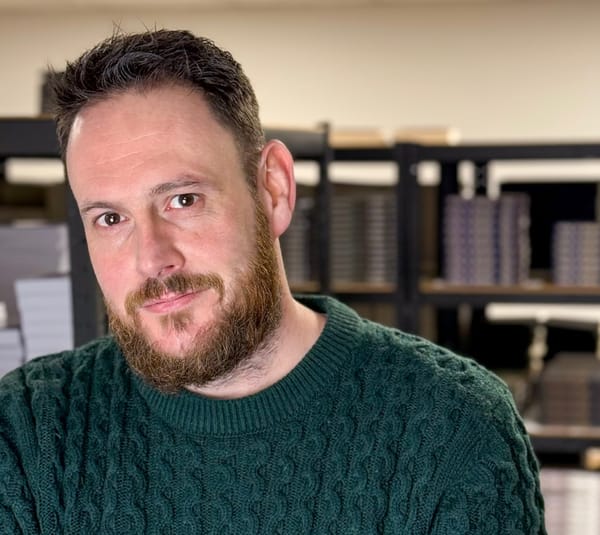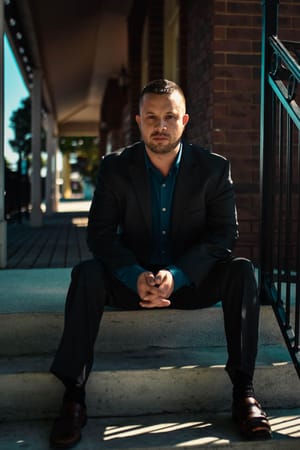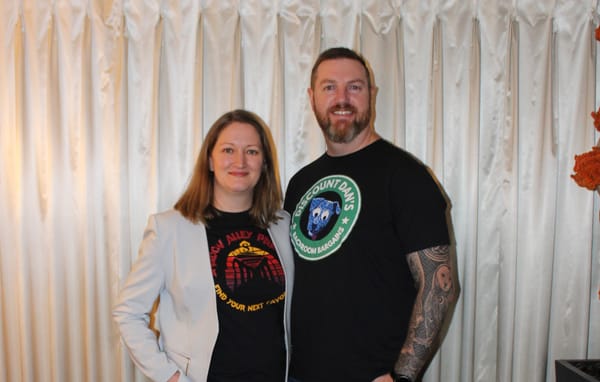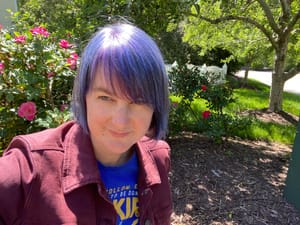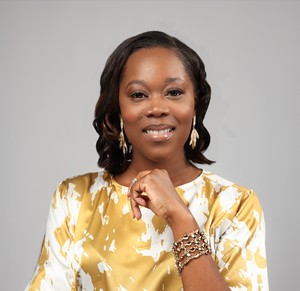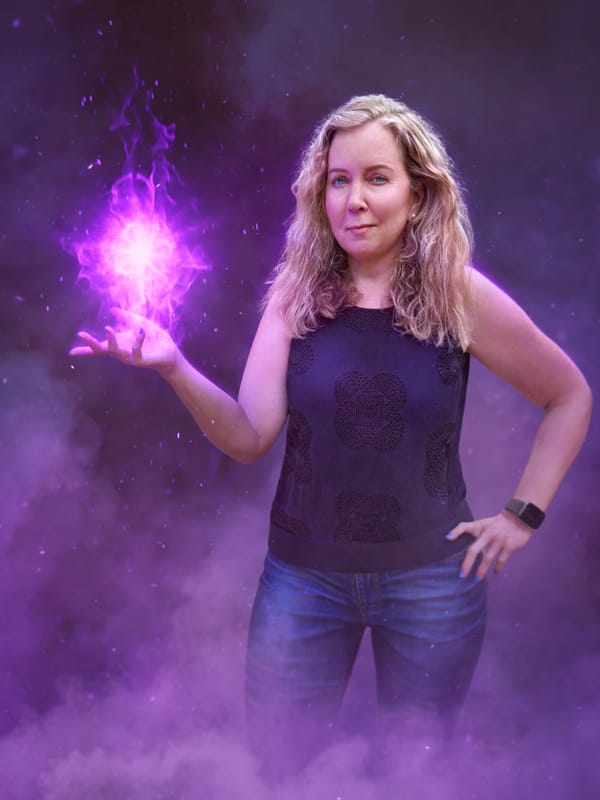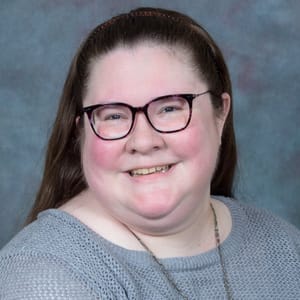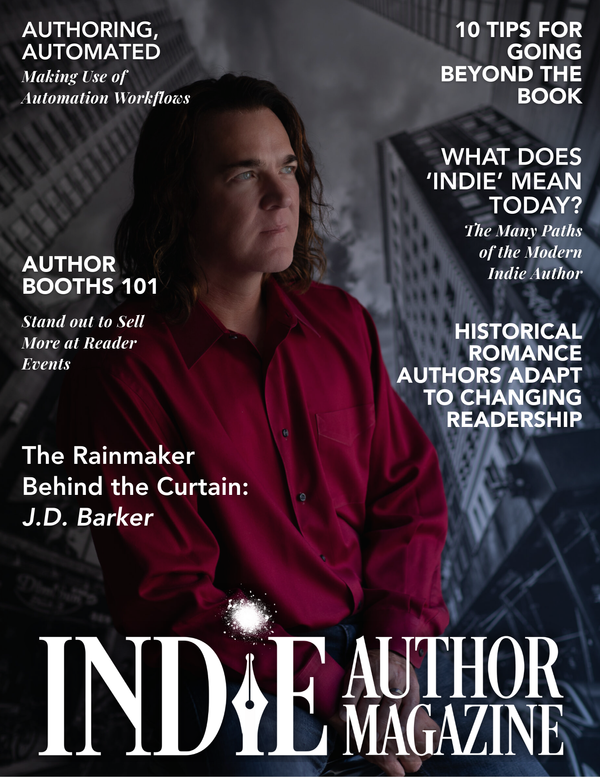Beyond The Author’s Planner, Audrey Hughey Helps Others Plan for the Future
When Audrey Hughey heard about a business planner created by female entrepreneur Carrie Green in 2017, she was hooked. The problem: As it was the first year they were being printed, and with the cost of shipping and exchange rates, Audrey wasn’t able to save up enough to buy one before they were out of stock. But the missed opportunity gave her an idea. “I had tried so many planners before, and … no matter how many pretty planners with pretty covers I bought, none of them hit the spot for what I needed in my life,” she says. “I needed something that told me on every page that writing is a core, central piece of my life.” So, she thought, why not create a planner of her own?
At the time, Audrey was six weeks away from the end of the year and knee-deep in a draft for National Novel Writing Month, or NaNoWriMo. But that didn’t faze her. With printing schedules, she knew she’d need to have the project finished and ready to ship before the first of the year. So she got to work.
For several days, she didn’t sleep or see much of her family. She ate most meals bent over her keyboard as she tried to piece everything together before her deadline. Two weeks later, however, the first proof was finished. By the first part of December, after she’d completed another round of revisions, she was holding the printed proof of the 2018 Author’s Journal in her hands.
Five years later, as an indie author herself and the founder of the Author Transformation Alliance (ATA), Audrey’s planners are far from her only endeavor. Audrey says she likes to use the title “authorpreneur” to describe her work—“but I don’t want to be too cliche.”
“I really dabble in a lot of things,” she says. “I'm always exploring what I love and my purpose.” Now, with the seventh iteration of her author planner published in October and as she prepares for a major rebrand of her business this month, it seems the author and creator has found that purpose.
“I can’t quite put my finger on it—she has a knack for understanding what writers need,” says author P. A. Duncan. And whether those authors connect with her through her planners, the sprint groups she’s organized, or the conferences and podcasts where she’s presented, most end up knowing her best for the positivity and support she offers them.
One Woman, Many Hats
Audrey’s author business would be plenty to juggle on its own, but it isn’t the only thing keeping her busy. Outside of the writing world, she’s also a mom of five children, her oldest a twenty-three-year-old and her youngest having turned a year old in September. As expected, the role comes with its own host of responsibilities—even those as unusual as needing to rescue the family’s missing cat in the middle of our interview.
With motherhood as her full-time job, Audrey says she fits writing into her schedule a few spare moments at a time. She wakes up to write sometime between when her husband gets up at 3 a.m. and when she wakes up her children at 6:30 a.m., then snags a bit more time once the kids are at school and the baby is settled for the morning. She says she prefers to tackle her to-do list in batches, focusing largely on a single project until it’s complete. “For some people, they want that steady consistency, doing the same thing every day. But for me, life doesn’t work with that, especially because I have so many kids going through so many different stages.”
As for where she writes? These days, most of Audrey’s writing takes place at home, but last year, when she was still pregnant, she often enjoyed doing her work at Starbucks. “That is my happy place to go and write and get the words in,” she says.
Even with all the organization it takes for her to put words down, the words themselves can sometimes be a surprise. The woman creating the planners isn’t always a planner herself, at least with her story worlds. And though her current work in progress is fully outlined, when she isn’t on deadline, she enjoys “pantsing”—a term adopted by NaNoWriMo participants that refers to writing by the seat of one’s pants—her way to a finished draft.
It isn’t just her plotting styles that vary. “I really want to explore what I love, what I enjoy, and just write stories that call to me,” Audrey says. Contrary to how many indie authors find success, she writes in a variety of genres, some under the same pen name. She admits she has a penchant for buying premade covers, and several ideas have come from the collection she’s amassed or ideas she’s let percolate until she feels she can do them justice. Her author brand isn’t built around a particular genre or target audience, and that is purposeful.
“I think that we shouldn't take for granted that we're in an age where we can explore what we want to write as indie authors, and we're not boxed into some requirements by a publisher about what they will and won't accept based on what they think is marketable,” she says. “I just can't imagine a life spent coloring in the lines when we might be interested in something just a little out of bounds.”
The Road to A Writing Career
Audrey’s preference for a variety of genres isn’t all that surprising, given how she grew up. With a dad who read Michael Crichton and Stephen King and a mom who added Piers Anthony and Anne McCaffrey to the shelves, her family’s home library offered plenty to choose from. But as much as she loved reading the stories, Audrey also loved creating them. As a child, she would whisper stories to her horses while on trail rides and pen Westerns and Fantasies as soon as she could write. “I think I just have it in my blood,” she says. Most of her family enjoys either music or storytelling, and today, several of her family members—her cousins Robert E. Keller and John Keller, her grandmother Mary B. Knapp, and her great aunt Kathy Mendoza, among others—are authors and award-winning writers themselves.
As she got older, Audrey’s love for stories remained, though her own interests grew to include ancient history and Greek mythology—tales she credits with helping open her mind to other cultures. That cultural awareness would serve her well when she entered the military in 2003. Over the next fourteen years, she spent time in both Germany and Afghanistan, including in combat zones.
For a while, she says, her books took a back seat to the rest of her life. But her experiences during those years taught her other important lessons, she says. “Spending enough time in combat zones—for many people, I think you come out of it with a different perspective about what's worth freaking out over.” The obstacles she faces today—be it a surgery, a vacation gone awry, or a missing cat—can be overcome; she just has to stay calm and adapt. Eventually, when she was stationed in Kandahar, Afghanistan, as a contractor in 2012, her schedule opened up enough for her to write again in the mornings. And by the time she’d moved back to West Virginia and discovered her local NaNoWriMo group a couple of years later, it had become more than a pastime. When she published her first book in 2019, she says, she realized it had become “this piece of my life that I couldn't let go anymore.”
But why self-publishing? Audrey never really considered traditional publishing for her books—even with her military background, she jokes she has a tendency to “question ‘authority.’” Where she had seen traditional publishing turn away a friend’s manuscript because the female main character didn’t cry enough, independent publishing offered Audrey a chance to control her own stories and shift the narrative.
“It never made sense to me. … How can we change literature if we keep being wrapped into these boundaries that are created just for the sake of predicted marketability?” she says. “(With self-publishing,) I don't have to wait for someone to give me the green light to write my own characters and my own stories.”
Sharing the Wisdom
As time has gone on, more projects have found their way into Audrey’s world. In February 2017, she founded the ATA, a place for writers to share resources and view courses related to the business side of publishing. A few months later, in November of the same year, the Author’s Planner was born. For Audrey, the tools and resources are a way to give back to the indie author community. But they’ve also helped support many authors as they’ve worked to grow their careers.
“It’s one thing to say, ‘I want to write a book,’ or ‘I want to be a six-figure author,’” says Epic Fantasy and Paranormal author Emily Burch Harris, a member of ATA. “It’s another thing to actually sit down with someone who knows how to put that into a scalable action plan.”
Audrey says the messages she’s received about how her work has helped people have become some of the most rewarding memories she has from her career. Publishing can be a hard road, she continues, but it shouldn’t be one authors feel they have to travel alone. “If I can help somebody in any way, whether through planning or time management or just an encouraging word, feel better about where they are and where they're going, then I should be doing that.”
What’s Next
Hughey says to remember that “it's not about planning out a day and having it happen perfectly because that is not life,” she says. “Life does not happen perfectly.” Instead, she says, the process is about finding goals that you truly want to reach and making strides toward them a little at a time. And it can be as easy as the thought exercise in the front of her planners.
“Think about December 31 of the coming year,” she says. “It's New Year's Eve, and you're celebrating. Your loved one—the person that you would spend that night with that is most important to you—they ask you, ‘What are you most proud of accomplishing this year?’ What is that one thing that you would be most proud … to accomplish in the next year? Think about that. Get super clear on that, and then create your goals for the coming year.”
Nicole Schroeder


